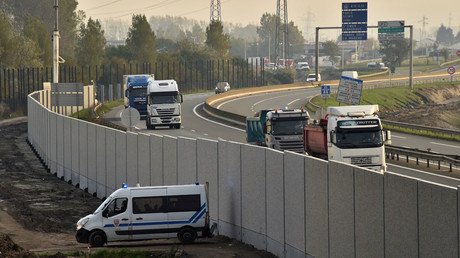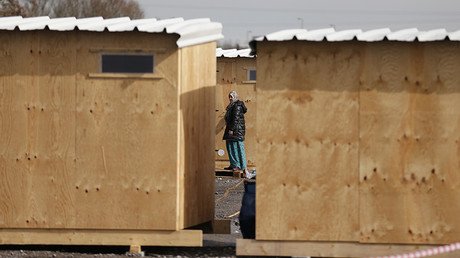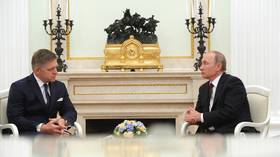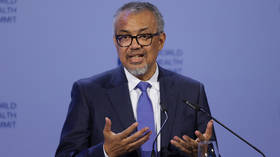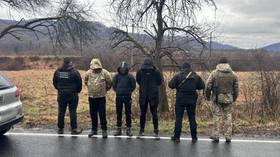‘Britain’s walls aren’t enough,’ Calais deputy mayor reflects on migrant crisis (RT INTERVIEW)
The UK is building walls to stop migration inflows, but this won’t keep away people who’ve covered thousands of kilometers to get to Europe, Calais’ deputy mayor told RT, adding that the city authorities fear migrants may return to the ‘Jungle’ camp.
“The English government is doing [a lot] to put fences [and] walls. Is that enough? It’s not... They’ve gone through a lot of walls; they’ve gone through the Mediterranean Sea. You think only wall and fences 30km away from the target [the UK] would be enough?” Philippe Mignonet told RT.
A 4-meter-high ‘anti-intrusion’ wall financed by the British government to stop migrants from jumping into trucks on the way from France to the UK was completed in December 2016. The wall is said to have cost €2.7 million (about US$3 million), according to AFP. Its primary goal is to thwart migrants from going to the UK, mainly on trucks.
Mignonet admitted that there is one thing French government can’t change: “Calais is [still] the shortest way to England.”
“Calais is a major place [for migrants] because this is where you maximize chances to get into a truck and get to England.”
Many asylum-seekers from the Middle East, Africa and Afghanistan travel to France in hope of crossing the English Channel to the UK. They have often had their applications rejected elsewhere, or expect better prospects in Britain than in the rest of the EU.
“[French] police are arresting [migrants] if they are caught. Some of them have refugee documents. But they still want to go to Britain,” he said.
If asylum seekers without any documents got arrested they are sent to specialized centers, while those with papers remain free and “one night they take a truck” and go to England, he added.
The notorious refugee camp dubbed the ‘Jungle’ was shut down by French authorities in October 2016. The majority of refugees from the camp were transferred to Dunkirk refugee center, some 47km from Calais. However, Mignonet worries that if Dunkirk camp is closed, these refugees would return to the Jungle.
It would be “the same process as was in Calais in October [2016],” he said, adding that traffickers and smugglers will come back, too.
According to the deputy mayor, Brussels does nothing to help France with migrant crisis.
“We have never seen anybody from Europe [Brussels authorities] in Calais area,” he said, adding that Calais is too far from Brussels.
Yet since the start of the year reports in French media emerged claiming that asylum seekers are back in the old place. In early February police sources told Le Figaro newspaper that up to 400 migrants, mostly ‘unaccompanied minors’, were seen in Calais.
A refugee aid group Utopia 56 has been recently posting photos of refugees in Calais on Facebook, saying that these people need clothes and food.
Another group, L'Auberge des Migrants, is also releasing photos of migrants in Calais. In January it wrote that, some 60 minor migrants, were in the streets of the city.
However, local people are not happy with migrants coming back. Calais residents even made a Facebook group, Les Calaisiens en Colère (Angry people of Calais), to share their negative experiences of meeting with asylum seekers.
“We knew well that they would come back. We are not surprised at all. There is no solution coming from the state [franc authorities,” one woman told RT, while another added: “We don’t want them to stay in Calais. Calais has suffered a lot. Our small business has suffered a lot.”
According to one local man, Calais doesn’t have the necessary facilities” to host asylum seekers.
